
My name is Sophia Schwarze and I am a student at the Health Professions school at Samford University in Birmingham, Alabama. In the spring of 2016 I was given the opportunity to study in London. It was my advisor who encouraged me to apply for an internship. Being only a second year in university I knew that finding an internship would be a bit more difficult. Although I am studying to become an Occupational Therapist, it was my passion for working with individuals with intellectual disabilities that opened the door to a small organization called Rix Inclusive Research.
Rix Inclusive Research is a company out of the University of East London that uses Multimedia Advocacy and person-centered planning to promote self-advocacy and human rights of individuals with intellectual disabilities. Having done a lot of work in this community I was somewhat aware of the various technologies used to help individuals with communication but ‘Multimedia Advocacy’ and ‘person-centred planning’ were concepts that I had never heard of. When I was first given the notification that I would be interning with Rix I was both excited and nervous. I had never interned before nor had I ever worked in an office.
It became clear very early on that there would be no micro-managing from the staff. On the first day I was given an assignment and everyone went back to doing their own work. At first I felt I might be uncomfortable with this approach but it was this trust and independent environment that really pushed me to become both more confident and more comfortable in my abilities. I never realized how much I relied on the direction and the confirmation of others. Sure I am a perfectionist and I want to make sure that I am doing the work properly the first time but Rix showed me that being confident in one’s own work and abilities from the beginning makes for a more productive and better employee.
Rix provided me with incredible opportunities both in and out of the office. I was given the opportunity to go out on my own and conduct interviews with Wiki users. Although it is primarily used for people with special needs, the Wiki’s function has been modified for a variety of different groups. Recently the Wiki has made its way into the mental health community. Whether it is being used as a personal recovery plan or as a communicative aid, the functions of the Wiki are designed to best suit the needs of the individual. One of my main tasks was to write case studies of individuals using wikis within the mental health field. It was incredible to see how a single product could be transformed to fulfill the personal needs of one individual. Having never conducted an interview before I had a lot to learn but of course with practice comes knowledge and eventually skill. Through the interviews I was able to meet some incredible people and see the Wiki being used in everyday life scenarios. I learned how to ask questions, how to gather material, and how to compose it into an article that truly reflects the individual’s story and feelings.
One of my favorite opportunities was being able to work with Ajay. Ajay, also known as the Wiki Master, is an employee and spokesperson with learning difficulties at Rix. Recently Ajay had been enrolled in a European Computer Driver License course which covered computer software programs such as Microsoft Word, Excel, Powerpoint, and Project. On Wednesday afternoons Ajay and I would go through the modules and quiz questions together talking things through and coming up with fun ways to memorize the material. Working with Ajay was not only fun but it gave me a glimpse into the kind of work I would be doing in the future and I have to say I am pretty excited.
Communication is something we use everyday and often we take it for granted. For those with intellectual disabilities or mental health challenges, being able to communicate can be difficult. Rix has dedicated itself to improving the lives of these individuals by giving them the tools they need to vocalize their thoughts, needs, and aspirations. Whether it is through video, picture, or text, every person deserves to have a say in their own lives and wellbeing.
Rix is something really special. The work that they do and the people they serve says a lot about the kind of people who work within its walls. Although it is a small team, everyone is extremely hard working and supportive. They have taught me so much and they have given me so many opportunities to be apart of something so much bigger than myself. It has only been three months but I am going to miss seeing the people here and I can not wait to see what amazing thing they do next.

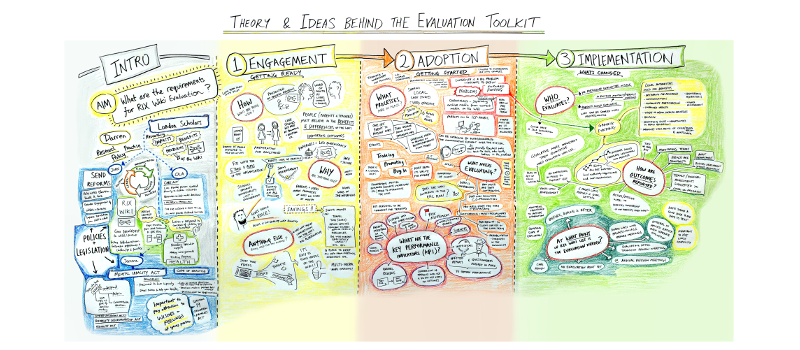
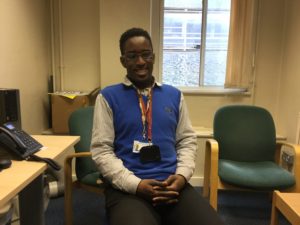 Santino Vassell is an associate peer recovery trainer at CNWL’s Recovery and Wellbeing College. He teaches a course at the college working with individuals with mental health and learning difficulties and he refers to this as his first real job. Santino is able to offer a unique perspective in the college as he himself has a learning disability as well as a mental health disability.
Santino Vassell is an associate peer recovery trainer at CNWL’s Recovery and Wellbeing College. He teaches a course at the college working with individuals with mental health and learning difficulties and he refers to this as his first real job. Santino is able to offer a unique perspective in the college as he himself has a learning disability as well as a mental health disability.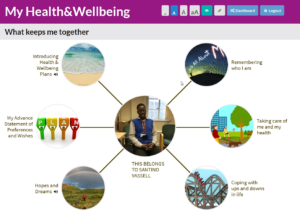 He attended a two-week Wiki Builder’s course with two of his fellow recovery trainers. Santino enjoys the person-centred structure of the Wiki and says that this makes it easier for people with mental health and learning difficulties to express themselves. He describes a Wiki as a story about you, told by you. “You can put your own pictures, your own writing, and you can even put your favourite songs on it! It’s a fabulous and brilliant tool.”
He attended a two-week Wiki Builder’s course with two of his fellow recovery trainers. Santino enjoys the person-centred structure of the Wiki and says that this makes it easier for people with mental health and learning difficulties to express themselves. He describes a Wiki as a story about you, told by you. “You can put your own pictures, your own writing, and you can even put your favourite songs on it! It’s a fabulous and brilliant tool.”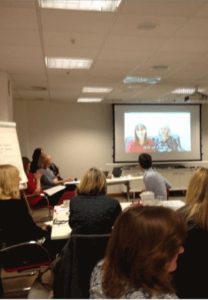 Bexley Voice For Special Needs Children (BV) is small charity, comprising volunteer parents and carers, which supports families of children and young people with special needs and disabilities age 0-25. We offer a programme of visits to all the schools in Bexley as well as meeting with professionals and our Local Authority. We generally have two volunteers attend.
Bexley Voice For Special Needs Children (BV) is small charity, comprising volunteer parents and carers, which supports families of children and young people with special needs and disabilities age 0-25. We offer a programme of visits to all the schools in Bexley as well as meeting with professionals and our Local Authority. We generally have two volunteers attend.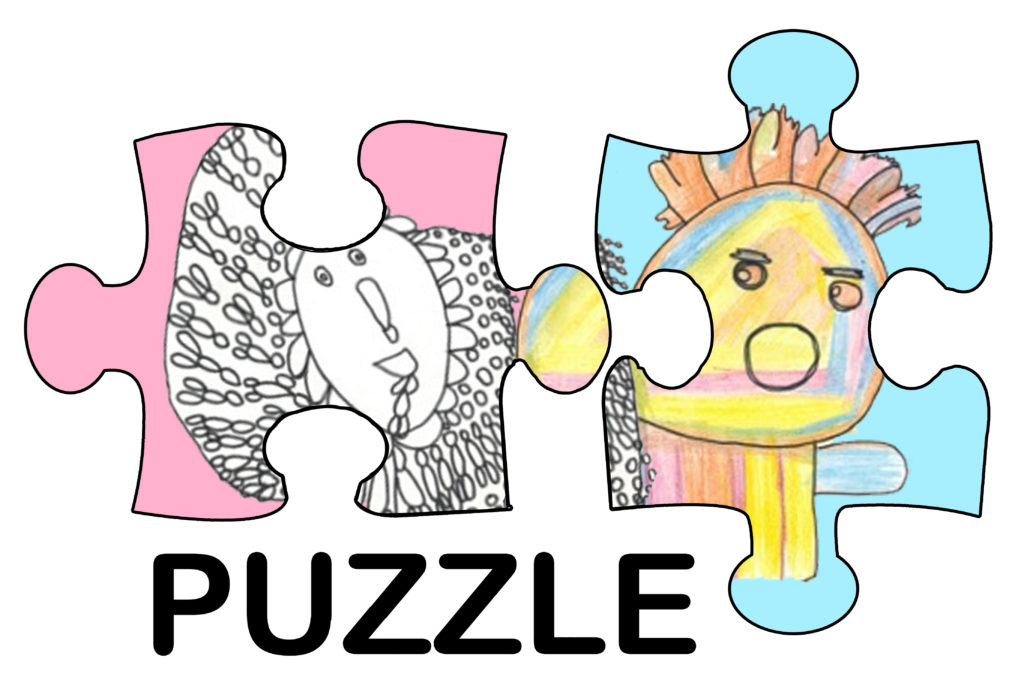
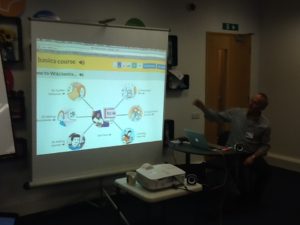 Currently, adults with intellectual disabilities (ID) in these European countries have fewer opportunities for education and training or for participating in the social and economic spheres of life. This is partly because much of the existing educational text has not been adapted to the specific needs and language skills of adults with ID, so that it can be easily understood. There is also a low take-up of suitable digital tools to support learning with adapted materials, both because the educators are not aware of the availability of such tools nor do they have the knowledge and skills to use them effectively.
Currently, adults with intellectual disabilities (ID) in these European countries have fewer opportunities for education and training or for participating in the social and economic spheres of life. This is partly because much of the existing educational text has not been adapted to the specific needs and language skills of adults with ID, so that it can be easily understood. There is also a low take-up of suitable digital tools to support learning with adapted materials, both because the educators are not aware of the availability of such tools nor do they have the knowledge and skills to use them effectively.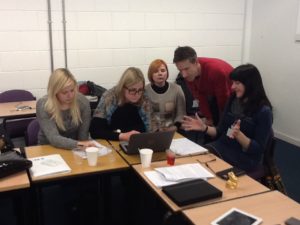 Puzzle is now well underway. An international team of 12 education professionals from Greece, Poland and Lithuania is being trained by the MTM specialists on the ‘easy to read’ method and by the Rix Research specialists on using innovative technology platforms as the main way of disseminating ‘easy to read’ material. Everyone came together in February, for a week’s concentrated workshop held in London, at the Rix offices at the University of East London’s Docklands campus. The workshop was a great success as the participants explored how the quality and accessibility of information provided to people with ID can be improved.
Puzzle is now well underway. An international team of 12 education professionals from Greece, Poland and Lithuania is being trained by the MTM specialists on the ‘easy to read’ method and by the Rix Research specialists on using innovative technology platforms as the main way of disseminating ‘easy to read’ material. Everyone came together in February, for a week’s concentrated workshop held in London, at the Rix offices at the University of East London’s Docklands campus. The workshop was a great success as the participants explored how the quality and accessibility of information provided to people with ID can be improved.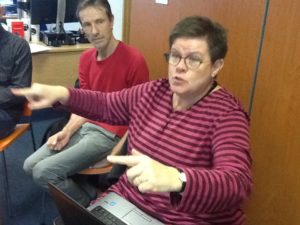 The Puzzle project will also see further research, led by Poland, on assessing how adults with ID in Greece, Poland and Lithuania access information on their human rights and their difficulties in understanding the written information. The research will lead to the development of an e-learning platform and mobile application, with information and learning materials on human rights issues produced in ‘easy to read’ format. This will then enable the design and testing of a series of ‘easy to read’ lesson plans to help people with ID understand their basic rights, for example in employment, housing, social integration and education
The Puzzle project will also see further research, led by Poland, on assessing how adults with ID in Greece, Poland and Lithuania access information on their human rights and their difficulties in understanding the written information. The research will lead to the development of an e-learning platform and mobile application, with information and learning materials on human rights issues produced in ‘easy to read’ format. This will then enable the design and testing of a series of ‘easy to read’ lesson plans to help people with ID understand their basic rights, for example in employment, housing, social integration and education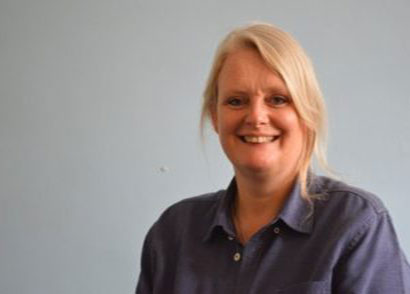 Amanda Bailey is the Deputy Manager of CNWL Recovery and Wellbeing College. She has a background in social work and nursing but she says, “It is my personal experience with mental health services that is really important in my job as a peer trainer.”
Amanda Bailey is the Deputy Manager of CNWL Recovery and Wellbeing College. She has a background in social work and nursing but she says, “It is my personal experience with mental health services that is really important in my job as a peer trainer.”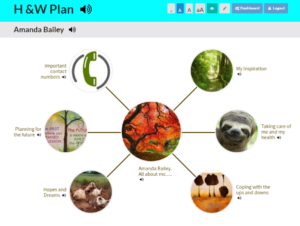 Amanda describes the Wiki as a dynamic extension of the Health and Wellbeing plan. “A health plan is constantly being changed and updated. Having the plan on the Wiki makes it much easier to do that, as well as keep professionals and supporters informed,” she says.
Amanda describes the Wiki as a dynamic extension of the Health and Wellbeing plan. “A health plan is constantly being changed and updated. Having the plan on the Wiki makes it much easier to do that, as well as keep professionals and supporters informed,” she says.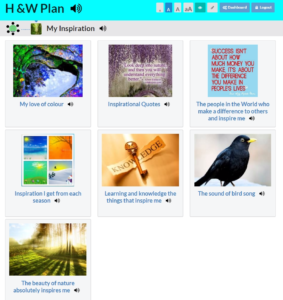 For Amanda building her Wiki made her realise what she really enjoyed and helped her to discover new things that she wanted to do in the future, for example, to walk a half marathon.
For Amanda building her Wiki made her realise what she really enjoyed and helped her to discover new things that she wanted to do in the future, for example, to walk a half marathon.
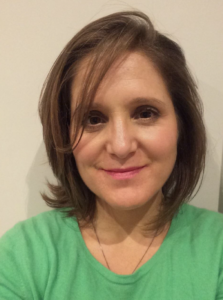 Thea Fitch is a peer recovery trainer and peer support worker in a community health team for homeless individuals, who are admitted to psychiatric wards. She uses her personal experiences with mental health difficulties, hospital admissions, and homelessness to help people get their lives back on track.
Thea Fitch is a peer recovery trainer and peer support worker in a community health team for homeless individuals, who are admitted to psychiatric wards. She uses her personal experiences with mental health difficulties, hospital admissions, and homelessness to help people get their lives back on track.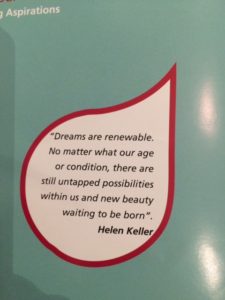 Thea finds great inspiration in certain quotes and now, instead of jotting a new quote down on the back of a piece of paper and stuffing it in a folder, Thea can add the image or type up the quote onto her Wiki and it is immediately uploaded and saved alongside her collection of inspirational words.
Thea finds great inspiration in certain quotes and now, instead of jotting a new quote down on the back of a piece of paper and stuffing it in a folder, Thea can add the image or type up the quote onto her Wiki and it is immediately uploaded and saved alongside her collection of inspirational words.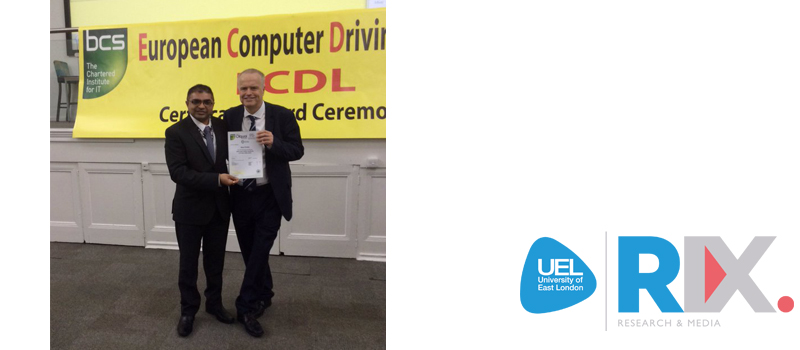
 Everyone at Rix Research & Media is so proud of Ajay. Gosia Kwiatkowska, Research Centre Manager, said:
Everyone at Rix Research & Media is so proud of Ajay. Gosia Kwiatkowska, Research Centre Manager, said: